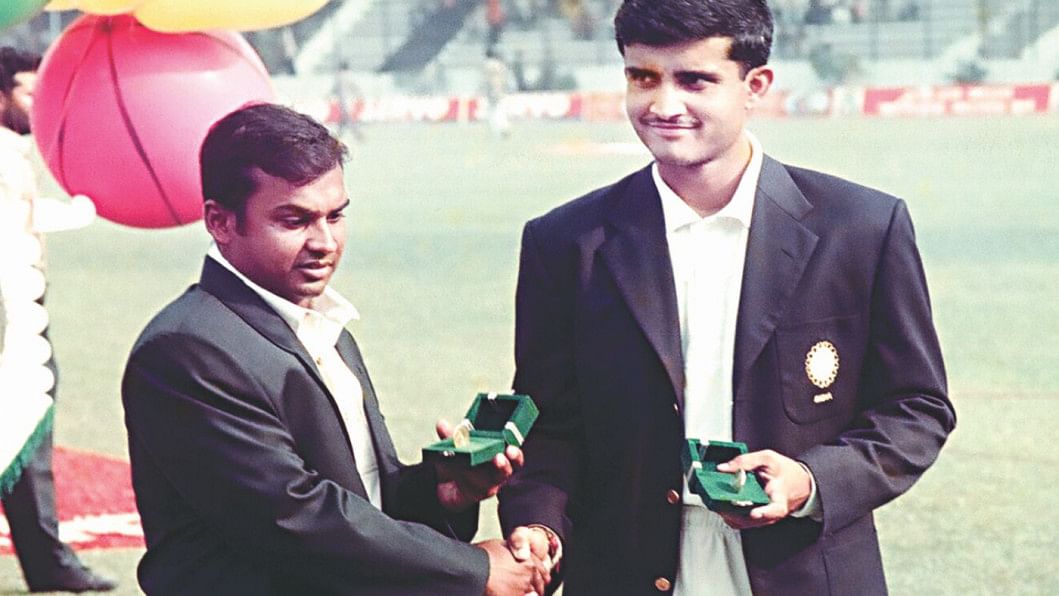A bumpy yet joyous ride

Bangladesh will reach a milestone today when skipper Mushfiqur Rahim strides in for the toss alongside his Sri Lankan counterpart Rangana Herath at the P Sara Oval in Colombo. The flip of the coin will mark Bangladesh's 100th Test, exactly after 16 years, four months and 6 days since their baptism at the Bangabandhu National Stadium against India.
At Colombo, Bangladesh will be fighting to save the two-match series after their heavy defeat at Galle last week. This is something Bangladesh have been striving for ever since their inaugural Test on November 10, 2000. They may have lost too many for comfort, drawn a few and won fewer along the way. But the tenth Test playing nation in that elite group is the burning example to world cricket of how to build on that tag and encapsulate the passion of a nation. Cricket is not only the Numero Uno sport in Bangladesh now; it is the everyday dose of dream and desire of 160 million people in this part of the world. Cricket is now more popular than football was from the 70s to early 90s in Bangladesh. It now sells as prime-time commodity for advertisers and media alike. There is an interesting anecdote of how cricket was treated when Bangladesh played their opening Test. On the second day of the Test Aminul Islam turned his overnight 70 to a brilliant century. But the report did not reach any readers the following day as it was a national holiday. In those days the internet was a relatively unknown quantity and the print media ruled the roost. But unbridled passion for cricket has now reached at a level that missing a small development of a national cricketer would constitute as a failure.
Our cricketers are now millionaires in BDT and the Bangladesh Cricket Board a millionaire in USD. The Test status brought a financial windfall for Bangladesh cricket on which the game is not only growing but also attracting that untapped bundle of youthful energy dreaming to be cricketers.
When those wise gentlemen in the ICC, the game's governing body, awarded Bangladesh the Test status, one thing they were convinced of was that this nation has got the soul -- the tremendous fan following -- and the potential to grow. And after 16 odd years Bangladesh has certainly repaid that faith by becoming one of the most passionate cricket nations. They however might not have grown in every count -- Bangladesh's first-class structure has not developed that much, they are not as competitive in Test as they are in the shorter version of the game.
But if we look at the broader perspective, Bangladesh is not supposed to be blamed alone for failing to excel in the demanding five-day contest. Kenya is perhaps a classic case of how an emerging cricketing nation is now literally dying. There was a time when Bangladesh's rivalry with Kenya was the most fascinating battle among the associate-member nations of the ICC. But a short-sighted vision from the game's governing body and years of neglect from it's elite members towards the associates is perhaps the prime reason for the demise of that Eastern African nation.
Bangladesh did get elevated to the Test family but there was hardly any concerted effort from the ICC or from the top teams to accommodate the newest member. It took India 16 years to accommodate Bangladesh on their home soil for a Test match. And after the first FTP (Future Tours Programme) teams like Australia, South Africa and England were actually very reluctant to host Bangladesh in the pretext that those tours would not be competitive and economically viable.
And this notion which is still deeply rooted among the top cricketing nations is the biggest obstacle for the lightweights like Bangladesh to grow. Besides, the whole thinking is against the spirit of globalisation of cricket. The ICC has recently agreed in principle to award Afghanistan and Ireland Test status. This is certainly a bold move towards the direction of globalising cricket in its true sense. But it will mean little if they fail to get enough exposure.
Bangladesh certainly have not got enough of that exposure in Test. It took Bangladesh almost 17 years to reach that 100th Test milestone. And by the time they reach the 200th Test, hopefully in fewer years, the Tigers definitely will present a more positive graph.

 For all latest news, follow The Daily Star's Google News channel.
For all latest news, follow The Daily Star's Google News channel. 








Comments